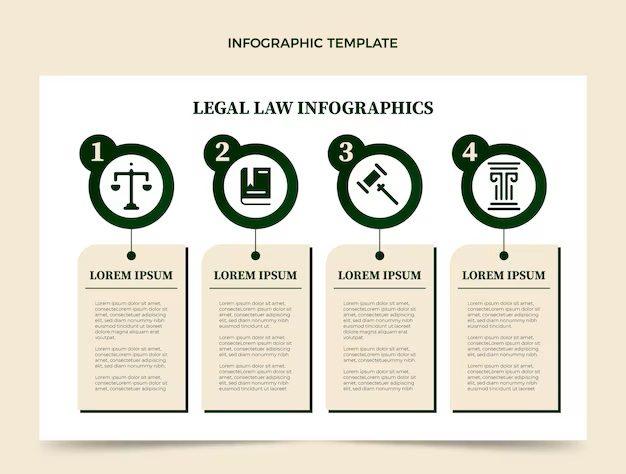In a rapidly evolving landscape characterized by unprecedented innovation, the intersection of law and commerce has taken on new dimensions. Emerging trends have necessitated a sophisticated understanding of various agreements and regulatory frameworks that govern contemporary dealings. With an ever-increasing reliance on digital solutions, the complexity of these interactions demands a nuanced approach to legal guidance.
Advisors working in this dynamic arena are faced with unique challenges and opportunities. As businesses navigate a myriad of intricate contracts and compliance requirements, the significance of seasoned professionals becomes evident. Their expertise not only helps to mitigate risks but also facilitates the strategic maneuvering necessary for success in a competitive marketplace.
Counsel in this domain possess the critical ability to bridge gaps between innovation and regulation. By understanding both the technical aspects of evolving products and the legal frameworks that govern them, they provide invaluable support. Whether negotiating agreements, ensuring regulatory compliance, or addressing intellectual property concerns, their contributions are essential for fostering trust and maintaining integrity within this vibrant ecosystem.
The Evolution of Technology Transactions
The landscape of commercial exchanges related to innovative resources has undergone significant transformation over time. As advancements in digital solutions and information systems continue to shape industries, the processes surrounding agreements, rights, and responsibilities have adapted to accommodate new realities. This evolution reflects broader societal shifts, technological advancements, and a growing complexity in market dynamics.
Historical Context
Current Trends
Presently, there is a marked shift toward agile frameworks and collaborative partnerships. This evolution is driven by the demand for flexibility and rapid adaptation in agreements that consider the fast-paced world of digital innovation. Collaborative models often prioritize shared goals, fostering mutual benefit through joint ventures and strategic alliances.
| Era | Key Developments |
|---|---|
| Pre-Internet | Emphasis on physical assets |
| Early Internet | Emergence of software licensing |
| Mobile Era | Focus on apps and user data |
| Modern Day | Agile collaborations and IP considerations |
Legal Frameworks Shaping Digital Agreements
In an increasingly interconnected world, frameworks governing online contracts are evolving to address new challenges posed by digital interactions. These regulations aim to provide clarity, security, and trust between parties engaged in electronic dealings. Understanding these structures is crucial for effective navigation and compliance in a landscape characterized by rapid technological advancements.
Various jurisdictions have adopted specific laws aimed at facilitating digital agreements, encompassing matters such as electronic signatures, consumer protection, and data privacy. This regulatory evolution reflects the necessity for legal systems to adapt to contemporary practices and protect stakeholders in a digital environment.
| Jurisdiction | Key Legislation | Main Focus |
|---|---|---|
| United States | ESIGN Act, UETA | Electronic signatures, contract enforceability |
| European Union | EIDAS Regulation | Electronic identification, trust services |
| United Kingdom | Electronic Communications Act | Legality of electronic signatures |
| Australia | Electronic Transactions Act | Contractual validity in electronic form |
Understanding these legal instruments enables parties to establish valid and enforceable agreements, fostering a secure online ecosystem. As digital landscapes continue to expand, adaptation and awareness of these legalities will remain essential for all entities involved in electronic commerce.
Key Challenges in Tech Contracting
In today’s fast-paced digital landscape, negotiating and drafting agreements presents unique obstacles. As industries continuously adapt to innovations, parties engaged in contractual arrangements must navigate complex legal terrains, ensuring compliance while safeguarding their interests. This dynamic environment demands a keen understanding of both technical and legal nuances, complicating the contracting process.
Rapidly Evolving Regulations
One significant challenge arises from constantly changing regulations and industry standards. Legal frameworks struggle to keep pace with advancements in digital platforms, software development, and data privacy. As a result, stakeholders often find themselves grappling with ambiguous guidelines, leading to potential compliance risks and disputes over contractual obligations.
Intellectual Property Concerns
Another critical issue is the protection of intellectual property (IP). In a realm where ideas and innovations are paramount, defining ownership rights within agreements can be contentious. Parties must clearly articulate IP usage, licensing arrangements, and potential infringement issues to mitigate conflicts and ensure beneficial outcomes.
Role of Lawyers in Data Protection
In an age where information has become a vital asset, professionals in the legal domain play an indispensable part in safeguarding sensitive data. Their involvement ensures that organizations comply with applicable regulations and develop practices that prioritize privacy rights. As the digital landscape continues to evolve, these advocates must navigate complex legal frameworks and emerging challenges to protect both companies and individuals.
Compliance and Advisory Functions
Supporting businesses in understanding and adhering to data protection regulations is a crucial aspect of legal practitioners’ responsibilities. They provide guidance on various laws, such as GDPR, HIPAA, and CCPA, helping organizations to implement appropriate policies and procedures. This advisory role not only minimizes the risk of legal penalties but also fosters trust with clients and partners.
Litigation and Dispute Resolution
In instances where data breaches occur or disputes arise, attorneys step in to represent affected parties. They play a pivotal role in managing litigation, negotiating settlements, and providing strategic advice on navigating crises. By employing their expertise in dispute resolution, these professionals help mitigate reputational damage and financial repercussions for their clients.
Negotiating Intellectual Property Rights
In a rapidly evolving landscape, discussions surrounding ownership and usage of intangible assets have gained significant importance. The complexities involved in orchestrating agreements require a nuanced understanding of different interests while safeguarding creators’ privileges and promoting innovation.
During negotiations, several key factors warrant consideration:
- Clarity of Terms: Precise definitions of rights, responsibilities, and limitations can prevent disputes later on.
- Scope of Usage: Define how the intellectual property can be utilized, including commercial aspects and geographic restrictions.
- Licensing Arrangements: Consider various licensing models, such as exclusive or non-exclusive licenses, to suit the needs of both parties.
- Duration: Establish timeframes for usage rights and the potential for renewal or expiration.
- Compensation Structure: Agree on financial arrangements, including royalties, upfront payments, or milestone payments.
Building a collaborative atmosphere can foster mutually beneficial outcomes. This involves open communication channels, understanding each party’s goals, and being adaptable to find common ground. Moreover, awareness of industry standards and precedents can enhance negotiation strategies and lead to more favorable results.
Ultimately, achieving a fair agreement in negotiations not only protects innovative contributions but also strengthens professional relationships, setting the foundation for future collaborations.
Future Trends in Legal Technology Services
As innovation progresses, services within the legal industry are poised for transformation. The integration of advanced digital solutions reshapes traditional practices, fostering enhanced efficiency, accessibility, and client interaction. Anticipating upcoming developments is essential for stakeholders aiming to remain competitive and meet evolving demands.
Automation and Artificial Intelligence
The rise of automation and artificial intelligence heralds a new era for legal service providers. By streamlining routine tasks, these technologies free professionals to focus on complex issues requiring human insight. Predictive analytics will further empower experts to make informed decisions based on data-driven insights.
Client-Centric Solutions
Future services will likely prioritize client experience, emphasizing personalization and transparency. Through innovative platforms, clients can access information, track progress, and communicate effectively with their advisors. This shift aligns with growing expectations for immediate and intuitive service delivery.
| Trend | Description | Impact |
|---|---|---|
| Automation | Streamlining repetitive tasks using software systems. | Increased efficiency and reduced operational costs. |
| AI Implementation | Utilization of machine learning for analytics and insights. | Enhanced decision-making processes. |
| Client Platforms | Development of interactive tools for client engagement. | Improved client satisfaction and retention. |
| Blockchain Adoption | Incorporation of decentralized technology for secure transactions. | Greater transparency and reduced fraud risks. |
| Remote Services | Provision of legal services via virtual platforms. | Enhanced accessibility for clients worldwide. |
Q&A: Adding lawyers an emerging field technology transactions
What are technology transactions, and why are they important in today’s economy?
Technology transactions refer to the legal agreements and negotiations that occur when technology is developed, licensed, sold, or shared. This includes a wide range of activities such as software licensing, joint ventures, mergers and acquisitions involving tech companies, and data sharing agreements. These transactions are crucial in today’s economy because technology underpins nearly every industry, and the proper legal management of these transactions can significantly impact a company’s competitiveness, innovation potential, and compliance with regulatory requirements.
What skills do lawyers need to effectively navigate technology transactions?
Lawyers involved in technology transactions must possess a unique blend of skills. Firstly, they need a deep understanding of technology and intellectual property law, as these areas are central to most tech agreements. Additionally, strong negotiation skills are essential, as lawyers must advocate for their clients’ interests while reaching agreements with other parties. Familiarity with business practices and commercial transactions is also important, as they help lawyers frame legal advice within the context of their clients’ business goals. Finally, an awareness of emerging technologies and trends is vital to anticipate potential legal issues and craft forward-looking agreements.
How do lawyers contribute to risk management in technology transactions?
Lawyers play a critical role in risk management during technology transactions by identifying, assessing, and mitigating potential legal risks that could arise from these agreements. This includes reviewing the terms of contracts for clauses that could expose the client to liability, advising on compliance with relevant data protection and privacy laws, and ensuring that intellectual property rights are properly secured and licensed. By thoroughly analyzing the potential risks and incorporating protective measures into the contracts, lawyers help their clients avoid costly disputes and legal entanglements in the future.
What are some common pitfalls that companies face in technology transactions, and how can lawyers help avoid them?
Common pitfalls in technology transactions include unclear contract terms, inadequate protection of intellectual property rights, and failure to consider regulatory compliance. Companies may neglect to define key terms or enforceability provisions, which can lead to disputes. Lawyers can help by drafting clear, comprehensive contracts that anticipate potential issues and outline the rights and obligations of all parties involved. Additionally, lawyers can advise on IP protection strategies and ensure that companies comply with applicable laws, thus avoiding costly mistakes or regulatory penalties.
What future trends should lawyers be aware of in the realm of technology transactions?
The landscape of technology transactions is continuously evolving, and lawyers should stay informed about several emerging trends. One significant trend is the rise of artificial intelligence and machine learning, which is leading to new types of technologies and business models that may require novel legal frameworks. Another trend is the increased focus on data privacy and cybersecurity, prompting stringent legal obligations for companies handling personal or sensitive data. Additionally, as companies increasingly opt for decentralized platforms and blockchain technology, lawyers need to understand the distinct legal challenges these innovations present. Staying abreast of these trends will enable lawyers to better serve their clients and navigate the complexities of technology transactions in the future.
What role do tech transaction lawyers play in the technology industry?
Tech transaction lawyers are crucial in navigating the complexities of business transactions involving technology. They represent technology companies in a wide range of legal matters, including technology transfers, licensing deals, and patent litigation. These attorneys help clients conduct due diligence, draft and negotiate agreements, and ensure compliance with relevant laws and regulations. In 2024, firms recognized as leading in the legal field, such as those included in the Legal 500, will increasingly partner with clients to protect themselves from risk and achieve their business objectives. Their expertise spans cloud computing, software as a service (SaaS), and the internet of things, ensuring that technology companies can effectively use technology in their operations.
How do legal developments impact technology transactions?
Legal developments significantly impact technology transactions by shaping the frameworks within which companies operate. As businesses increasingly assume liability based on their use of technology, transactions attorneys are essential in drafting terms of service and end-user license agreements that protect clients from potential risks. In 2023, many legal changes focused on outsourcing transactions and corporate transactions in the technology sector. Experienced technology lawyers in Silicon Valley and across the U.S. must stay informed of these developments to advise clients effectively on technology licensing, supply chain and distribution agreements, and other legal matters related to technology. Keeping up with the latest news and insights ensures that firms can help their clients navigate the evolving legal landscape successfully.
What challenges do technology companies face regarding outsourcing and cloud services?
Technology companies face numerous challenges when it comes to outsourcing and cloud services, particularly in the areas of compliance and risk management. As these businesses expand, they often need in-house legal teams to help these matters move smoothly. Transactions can involve complex licensing of technology and cloud computing services, requiring experienced attorneys to negotiate transactions that align with the company’s business objectives. Additionally, the increasing reliance on outsourcing can raise concerns regarding supply chain management and liability. Companies must ensure that their agreements are structured to protect themselves from risk and maintain compliance with legal and regulatory requirements across a range of industries. With the help of legal counsel, technology firms can navigate these challenges effectively while focusing on their core business activities.
What services do law firms provide to technology companies during various stages of growth?
Law firms provide a comprehensive range of services to technology companies throughout different stages of growth, particularly in transactional matters. They work with clients to navigate complex legal and commercial challenges, ensuring that all agreements and transactions for clients are crafted effectively. Leading technology firms often have specialized lawyers in-house to help these matters move smoothly and protect the company’s interests. These attorneys advise on a broad spectrum of legal issues, including acquisition and licensing agreements, private equity transactions, and compliance with legal requirements. By partnering with clients, law firms ensure that companies need tech solutions that align with their strategic goals, providing informed legal research and support to update your choices as needed. Ultimately, these efforts enhance access to justice and help technology companies thrive in a competitive landscape.
How do law firms assist shareholders in navigating technology matters?
Law firms play a critical role in assisting shareholders by providing expert legal guidance on technology matters. Their leading legal teams understand the complexities involved in a broad range of agreements, ensuring that shareholders are well-informed about their rights and responsibilities. Lawyers advise shareholders on legal and compliance issues, helping them navigate potential risks associated with technology investments and transactions. By partnering with our clients, law firms can negotiate agreements on behalf of shareholders, ensuring that their interests are adequately represented and protected. This proactive approach not only enhances shareholder value but also fosters a collaborative relationship between shareholders and the firm, allowing for more effective decision-making in technology-related ventures.








